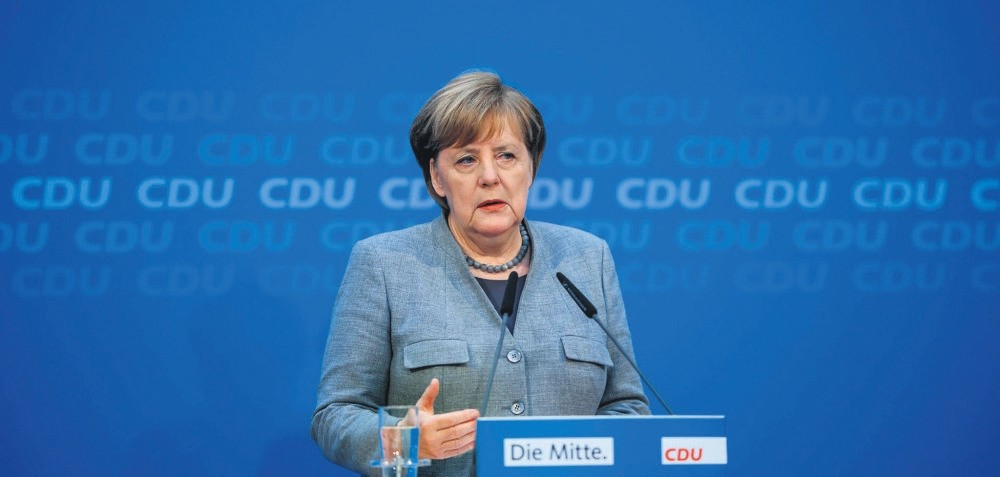
Hoping to form a traditional grand coalition for the sake of the country's stability, German Chancellor Merkel wants to conclude the initial coalition deal with the Social Democrats by mid-January
German Chancellor Angela Merkel said yesterday she hoped to conclude the exploratory talks with the Social Democrats (SPD) on forming a government by mid-January so that both parties can launch official negotiations on renewing their alliance.
Merkel made the comments after she was asked if comments by French President Emmanuel Macron that he hoped to make progress with Germany on ideas to reform the eurozone by March were realistic.
"We want to build a stable government," Merkel said. "This means that the success of the exploratory talks means, in the view of the CDU, as well as the CSU, that we need to reach agreement on specific issues during the exploratory talks."
Merkel told reporters that anything other than a grand coalition would be considered a failure of the preliminary talks, according to the Associated Press (AP).
Merkel's conservatives and the Social Democrats have governed Germany together since 2013 in a grand coalition. The Social Democrats ruled out another after performing poorly in September's election, but reluctantly reconsidered after Merkel's talks with two smaller parties collapsed. Still, party leader Martin Schulz has left options open, saying exploratory talks will also consider the possibility of a looser arrangement, like possibly supporting a Merkel-led minority government.
The SPD warned yesterday Chancellor Merkel's conservatives that it would not win approval from its members for a new coalition government if it gave way on key election promises.
SPD members will have the final say on any deal to renew the alliance with Merkel's Christian Democrats (CDU) and their Christian Social Union (CSU) Bavarian allies.
General Secretary Lars Klingbeil said they would demand distinctive leftist policies, along the lines of the single "citizen's insurance" that the SPD wants to replace Germany's private and public healthcare systems.
"The Union [CDU/CSU] knows that the SPD members have the final say [...] and we need to be able to convince them on substance," Klingbeil told the public broadcaster ZDF, as reported by Reuters.
The SPD, which shed support to the far right and to the hard-left Die Linke in the election, says the existing hybrid health insurance system discriminates against the poor.
Conservatives, including Merkel, say switching to a unified system would erode competition and worsen services.
SPD and conservative negotiators will hold their first meeting tomorrow. Immigration is expected to be another key point of contention. The SPD opposes a conservative plan to extend beyond March a temporary halt on the right of some accepted asylum seekers to bring in family members.
It says the measure hampers efforts to integrate the 1.6 million people who entered Germany seeking asylum in 2015 and 2016. "Integration works only with families," Klingbeil said.
The CSU, which fears losses to the far-right Alternative for Germany (AfD) in an election in Bavaria next year, is likely to put up more resistance to SPD policy demands than the CDU, notably on immigration.
In the September general election, in which the far-right Alternative for Germany (AfD) protest party siphoned millions of votes from all mainstream parties, the SPD scored just under 21 percent, its worst showing since World War II.
